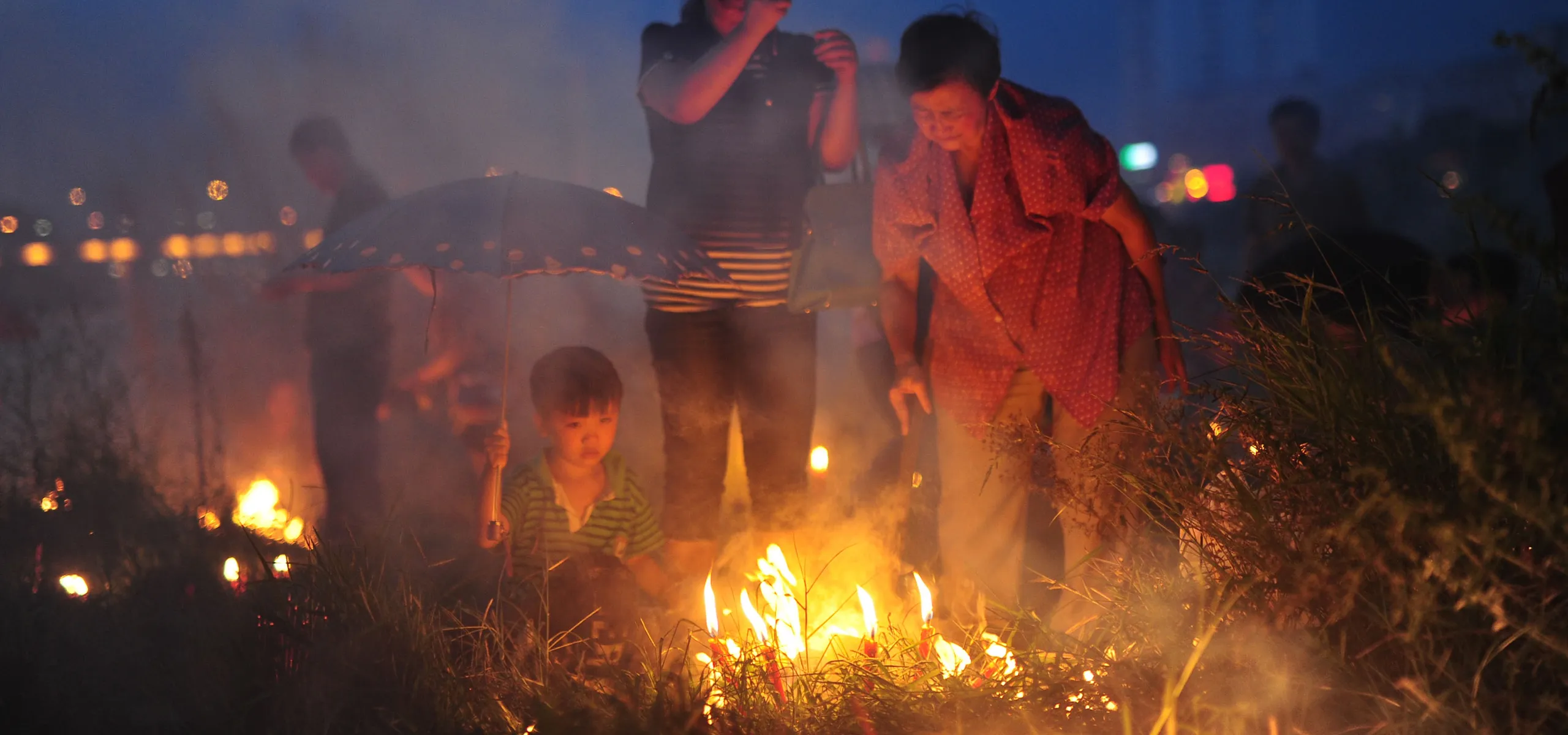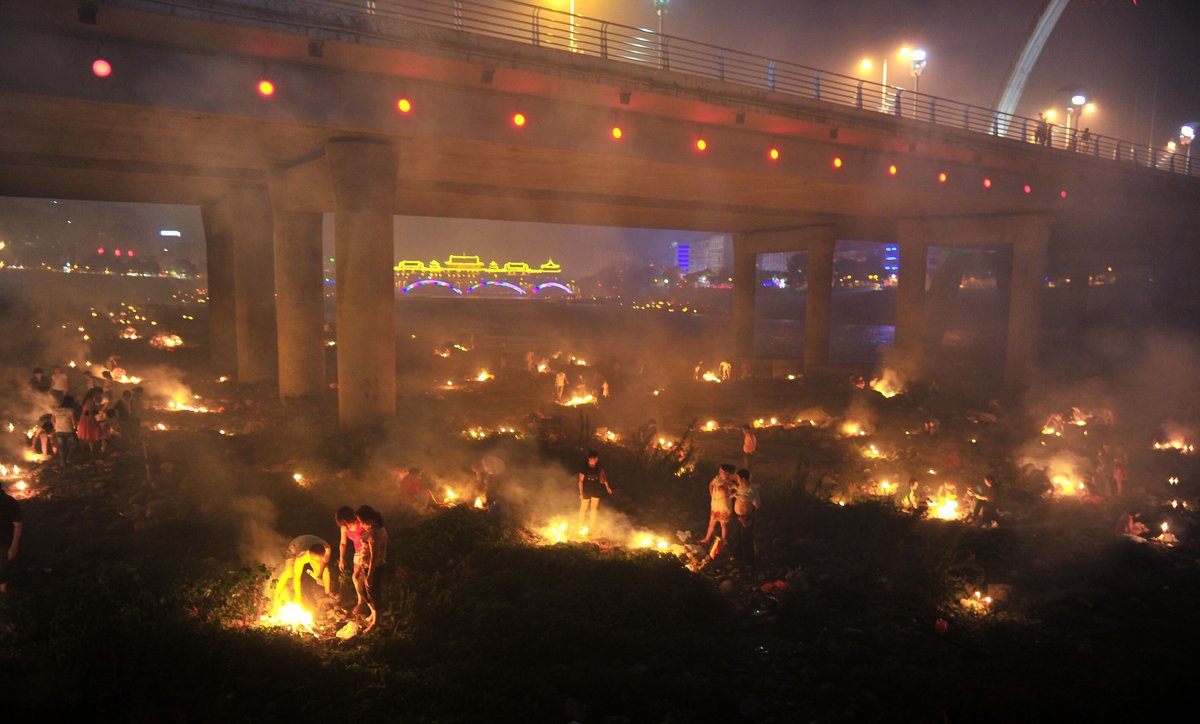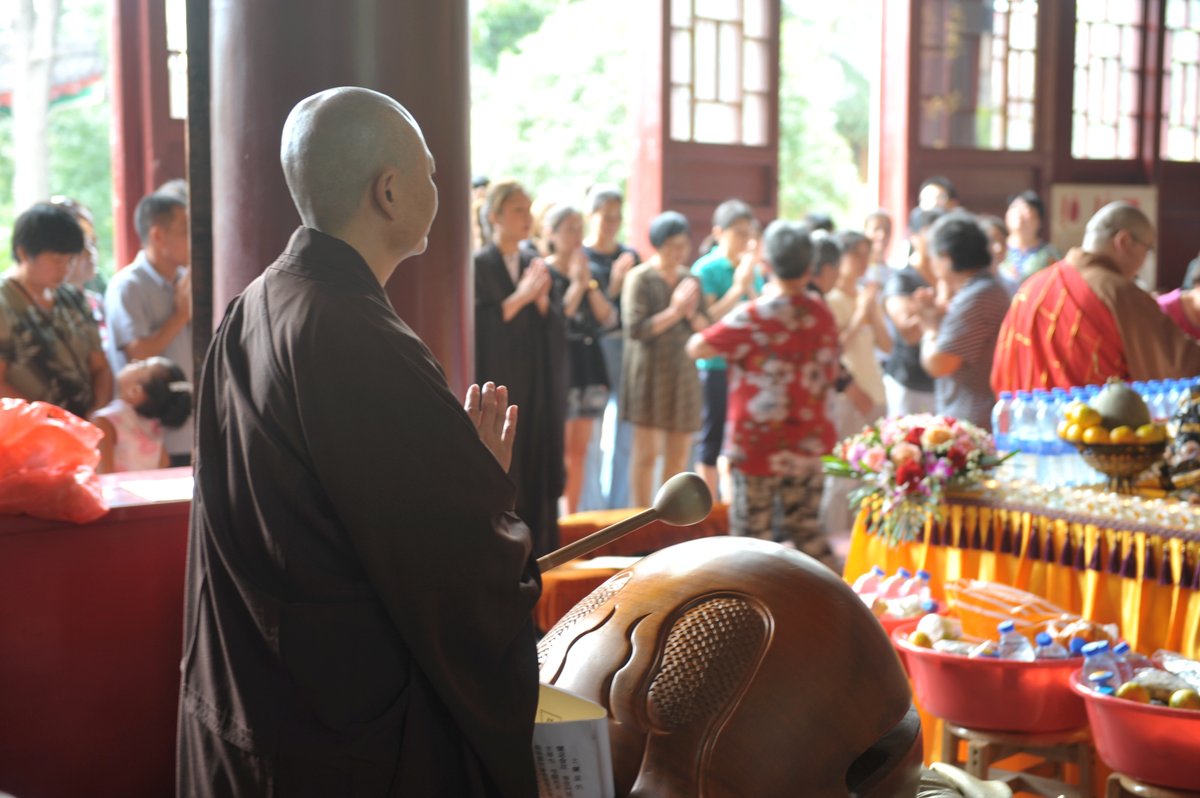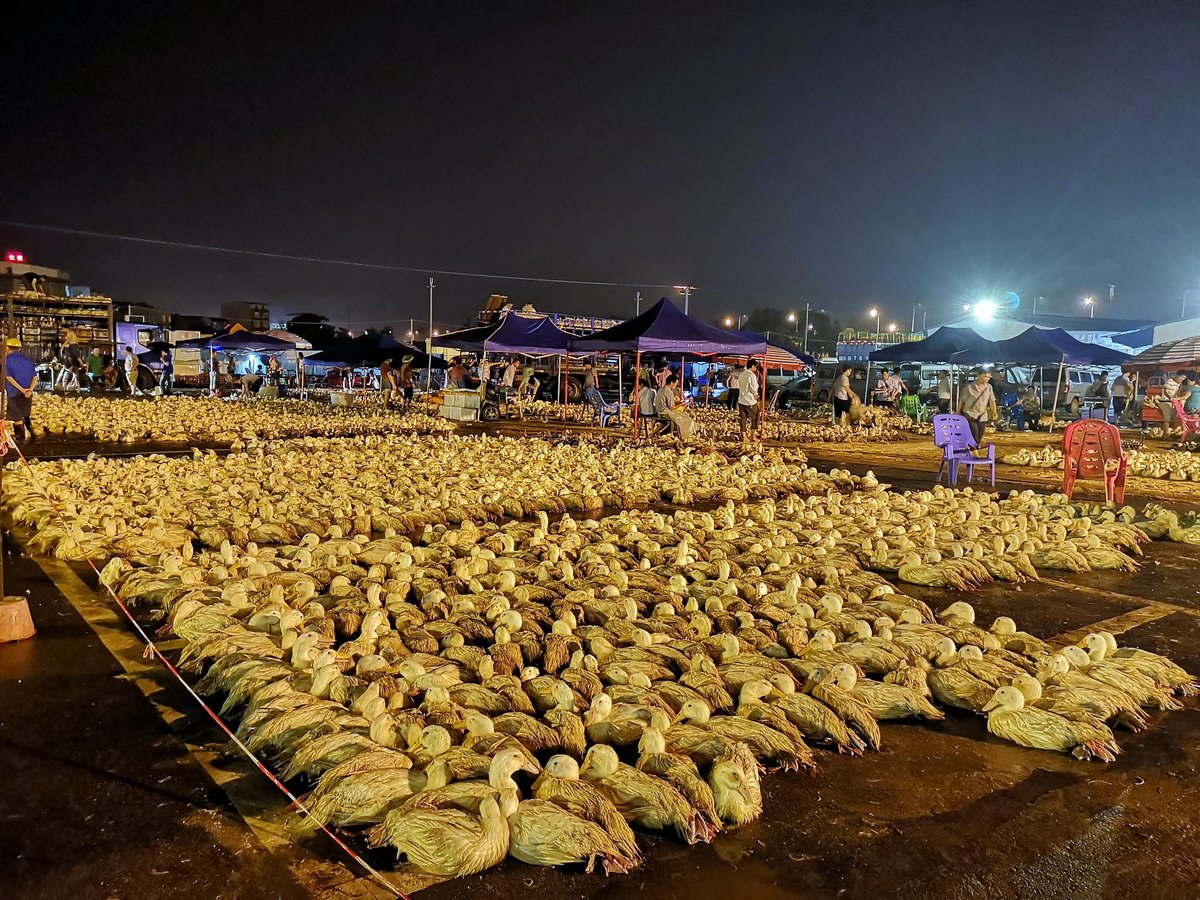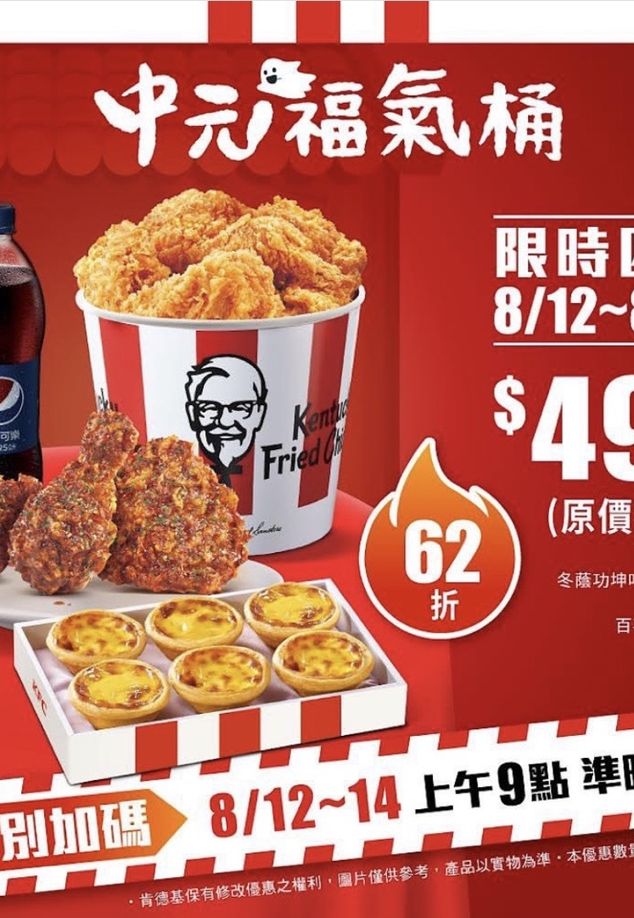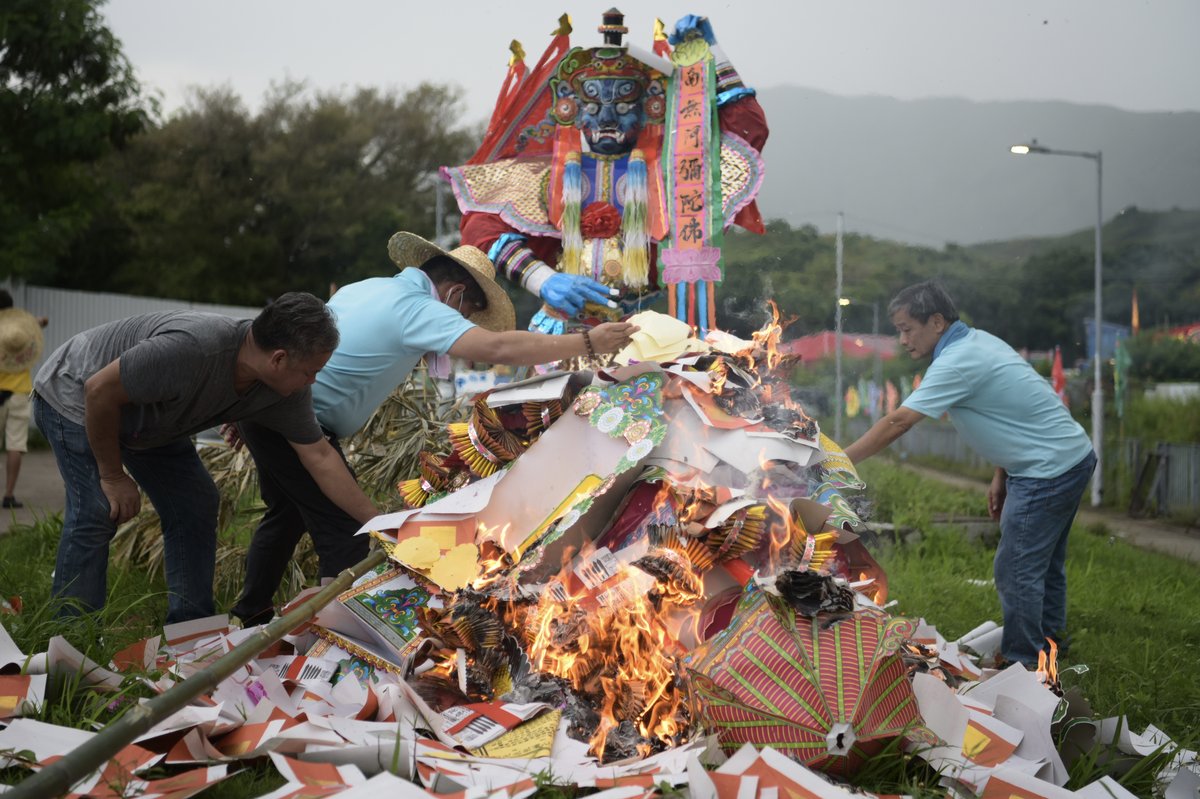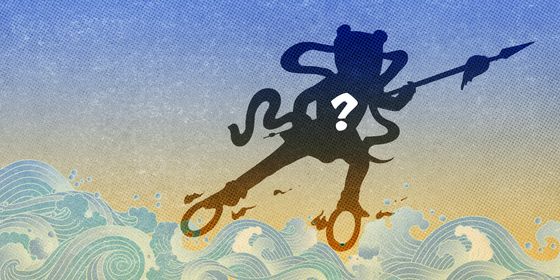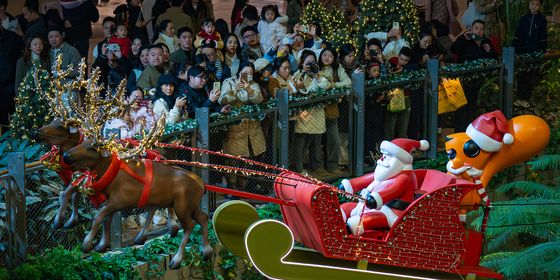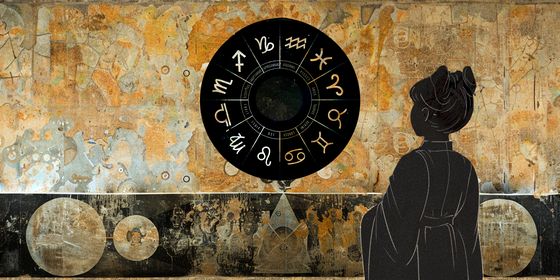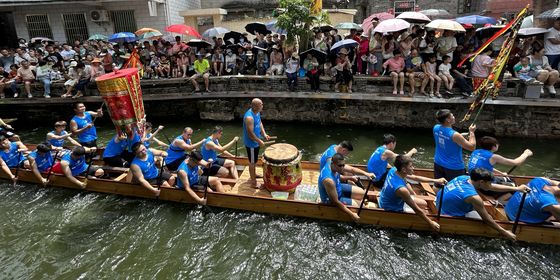How to avoid hungry ghosts and placate “good brothers” this Zhongyuan Festival
Don’t stay out too late tonight, because this is the night when many ghosts roam the streets—this spine-chilling admonition is told to many a Chinese child on Zhongyuan “Hungry Ghost” Festival, held on the fifteenth day of the seventh lunar month.
Popular folk belief has it that around this time of year, the King of Hell opens the gates of the underworld so the deceased can return to the human realm for a visit—that includes not just your loving ancestors, but also wild and lonely ghosts starved of worship rituals or offerings from their offspring. In Daoist tradition, the revered deity Diguan, or “Official of Earth,” takes the fifteenth day of the month to absolve the sins of the world.
Buddhists celebrate this day as Ullambana, with a different origin story in which Maudgalyayana, a disciple of Buddha known as Mulian in China, set up food offerings for members of the Buddhist sangha to request their help to redeem his mother from the Realm of Hungry Ghosts, where she was condemned to suffer from starvation. Eventually, this day became a time to commemorate the filial piety of Mulian, and make offerings to all departed spirits.
As the lines between worlds and belief systems blur on this day, the occasion has become associated with taboos and elaborate rituals. People pay their respects to the deceased and seek to steer clear of other-worldly troubles. However, Zhongyuan Festival is not universally characterized by solemnity and spookiness, as for some, it has evolved into an opportunity for various feasts and festivities, which may involve everything from ducks, to paper iPhones, and even pole dancing.
Taking care of ancestors and “good brothers”
Intersections and riversides (locations believed to offer easy connection to other worlds) are lit up by flames, as worshipers burn joss paper, hoping to send wealth to their deceased ancestors and relatives.
Some suggest, while burning offerings for your ancestors, you should leave a few bank notes nearby to appease any wild ghosts, so that they won’t take the offerings intended for your beloved. In areas including Taiwan and Minnan (the coastal region of southern Fujian province), people refer to these wild spirits with the euphemism “good brothers.”
Redemption for all souls
In Buddhist temples, such as Chengdu’s famous Wenshu Temple, monks chant and organize offerings for the Buddha and bodhisattvas to pray for the well-being of all, as well as host rituals on the day to “release suffering souls from purgatory and paths of bad karma,” as Wenshu’s WeChat account introduces. In addition, it also delivers provisions to local nursery homes and welfare institutes.
Even non-Buddhist temples, such as one on the Changdao Islands of Shandong province which worships the sea goddess Mazu, join the benevolent spirit. In 2020, this Mazu temple announced a ceremony that, in addition to paying tribute to deceased souls, would “pray for the victory of our country’s people against the pandemic.”
In Taiwan, it is a common practice for households, businesses, or associations to host their own ceremonies, known as Zhongyuan Universal Salvation Ceremonies, to honor “good brothers.” Many set up temporary altars with offerings including meats, fruits, and flowers, and follow a detailed sequence of rituals and dos and don’ts.
In many areas, people also release lanterns into water or set them up on roadsides, hoping to help lost souls find their way home.
Feast for both worlds
In Guangxi, while the festival might be a good day for hungry ghosts, it is apocalyptic for ducks. Duck with lemon, blanched duck, or duck in a dry pot…these birds are musts for Zhongyuan feasts. Last year, A 29-year-old duck seller in Liuzhou told Chinanews.com that around the festival, the number of ducks he sold soared from the usual 700 or 800 a day to 1,000 or 2,000.
One theory for this duck obsession points to a possible folk belief that deceased souls ride ducks to traverse between the two worlds, and thus eating ducks will send the birds to the other realm to assist their ancestors. Another theory explains that, in ancient times, Guangxi people started raising ducks around spring, making Zhongyuan the time when the ducks were plump and ready for eating.
Among the Yao people of Yunnan province, according to an article by public WeChat account Yao Culture, it’s chickens that are slaughtered—at least three for each family hosting the ritual. Meanwhile, in parts of central China, people make steamed buns shaped like goats, and offer them in the animals’ stead.
Offerings that keep up with the times
While people burn joss paper as if making a wire transfer to the netherworld, they also want their ancestors to enjoy the trendiest trinkets on the market. Manufacturers have kept up by churning out fashionable clothes, golf clubs, iPhones, and even private jets—all in paper form, ready to be burned! According to the WeChat public account Boyangcong People, in 2008, a manufacturer even got into copyright trouble with Rolex and Louis Vuitton, and had to tweak the logos from then on: “iPhonie” instead of iPhone and “SKIII” instead of SKII.
Masks, alcohol sprays, body thermometers, and even green health codes made of paper for burning have also been spotted in recent years, to protect the dead from Covid-19.
Some in Taiwan have even started placing food from KFC at the altars as offerings. At the time of writing, some locations of the fast food chain have introduced a special offer called “Zhongyuan Lucky Bucket.” This includes a large selection of fried chicken, egg tarts, and Pepsi, with a happy-looking cartoon ghost on the promotional materials seemingly offering its seal of approval.
An occasion for fun
In an article for the China Writer’s Association in 2017, Bouyei writer Wei Xingsheng remembered the festival from his childhood in Guizhou as a multi-day celebration—about the only occasion other than the Lunar New Year when parents would buy children new clothes. He recalled, in addition to feasts, rituals, and visits with relatives, time was set aside for games like spinning tops, as well as suona performances and singing.
In parts of the south of the Chinese mainland, Hong Kong, and Taiwan, people step in after the rituals to try to snatch the offerings for themselves, an activity called qianggu. In some places, the offerings are set on elevated platforms, which competitors have to climb oiled sticks to reach. Some say it’s to get the offerings before the ghosts take them, others say it’s to create a scene to scare away any ghosts who wish to linger.
In some parts of Taiwan, Zhongyuan gatherings even try to whip up an atmosphere with pole dancing. In Singapore, those celebrating set up special concerts called getai, with the first row of seats always left empty—or so it may seem...They are in fact VIP seats reserved for the “good brothers.”
Supernatural contact
Of course Zhongyuan Festival is no one-way show of benevolence or piety. According to popular belief—some might call it superstition—the “good brothers” may also try to make contact with the human realm on this day. Some common advice on avoiding unwanted contact include: Avoid taking photos, or you might be surprised by the image you capture; do not hang up clothes, or “good brothers” might borrow them; and if you tap on someone’s shoulder, it puts out an invisible fire, and gives “good brothers” an opportunity to pounce.
While swimming is often advised against on this day, Yao culture permits children to swim in rivers—and if they carry a rice sift to the bottom of the water, it is believed they might be able to see their ancestors.
Going green
As the clock struck 9 on the night of Zhongyuan in 2016, the air quality index (AQI) reading in Guiyang, Guizhou province measured 32, indicating good air. As paper burning continued, the AQI rose to 215 by 11 p.m., labeled “very unhealthy.” This year, the city came out with a campaign promoting “civilized offering,” according to state media outlet Xinhua, advising residents to bring goods, flowers, and cards to designated “memorial post boxes,” rather than burn paper.
In many other cities, like Chengdu and Tianjin, governments have issued announcements for Zhongyuan Festival, suggesting alternatives like “online offerings,” while designating areas of the city where burning is not allowed. In 2021 around Qingming Festival, another festival where paper burning is popular, water-soluble offerings have gained traction on the market as a more environmentally friendly alternative.
Singaporean news outlet Zaobao has reported this green trend has been well received by religious communities, with Daoist abbot Chen Xianda calling for “rational burning,” and Buddhist monk Shi Youwei pointing out that the amount of joss paper burned has nothing to do with the amount of good karma one accumulates. “It’s more about ‘the incense of the heart,’” Shi told Zaobao in July this year, referring to true-hearted veneration. “Kindness of heart is what drives our merits. It shouldn’t rely on the materialistic.”
While those in the human realm seem to be embracing the change, it remains to be seen whether the “good brothers” will be in such high spirits this Zhongyuan Festival.





